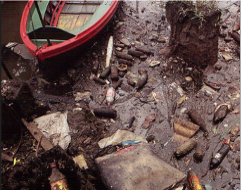Non-Renewable Resources

At Dumpster Rentals Cooperative we work hard to protect the environment. We encourage all the members of Dumpster Rentals Cooperative to recycle, properly manage and dispose of waste materials.
We really appreciate all the help we are getting from dumpster rentals Calgary , AB, dumpster rentals Edmonton , AB and dumpster rentals Toronto , ON companies who continuously help us to collect and publish blog posts related to environmental protection.
The excessive and indifferent plunder of potentially renewable resources, such as fish and timer, is not the only challenge that societies face in achieving more sustainable economies. Our exploitation of non-renewable resources is causing major impacts as well. For example,mines, pipelines and oil production facilities have encroached on many protected areas worldwide, while the pollution produced by these operations has contaminated water and food chains. There have also been many conflicts over land rights with indigenous peoples, who had little if any say about the exploitation of resources found beneath their ancestral lands.
Demand is so strong, however, and the potential financial rewards so great, that these cultural and environmental impacts are often pushed aside in the name of growth, profitability and development. Although the development gains arising from the exploitation and export of resources are often overstated-certainly in terms of the benefits that will arise for many local people-the case in favour of resource extraction usually prevails, often to the detriment of conservation and sustainability.
It is not just the extraction of resources that is an issue. Processing ores into metals uses vast quantities of energy; the same goes for the manufacture of plastics. More energy is used up in shaping metals and plastics into products. The demand for new products creates demand for new mines, oil wells and refineries, and locks in more energy use, in turn leading to more pressure on ecosystems and more green house-gas emissions.
The overall level of demand for resources is ultimately shaped by how we live. And how we live is leading to vast pressure on the natural resource base, not only in respect of renewable products, but also of non-renewable materials. One study looking at the use of copper estimated that, if everyone in the world consumed goods as people presently do in Western societies, then we would require all of the copper ore left in the Earth’s crust, plus all of the copper presently in use, to meet demand of electrical and other goods that need copper. The same study estimated that, of all copper that was once in the Earth’s crust, about a quarter is now lost in non-recycled waste, for example electrical products that are buried in landfills.
Copper mines in several countries have contributed both to the loss of wildlife habitats and to conflicts with local communities. Copper minds have also caused pollution of rivers. Bauxite mines, titanium oxide workings and iron ore mines have all also been a factor in habitat loss.
The earth’s resources cannot be seen as infinite; the consumption of some metals such as copper is currently unsustainable. We need to both reduce consumption and increase recycling.
It’s only for the sake of the natural world that we should be concerned about the effects caused by ur demand for different resources.
- Published: 2011-05-21T09:00:56-07:00
- Author: Anna Krupp




